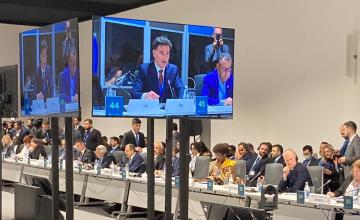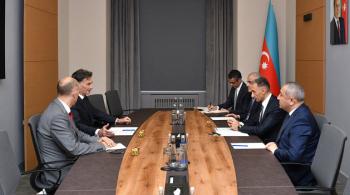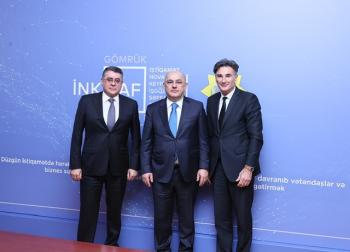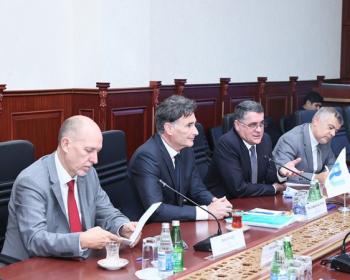Supported by IRU, Azerbaijan’s Minister of Transport, in his capacity as COP29 transport lead, and ministers from around the world have committed to advancing the Middle Corridor as a model for sustainable, interconnected, digital and resilient development.
At the dedicated COP29 Transport Day, ministers and international representatives from Chile to China discussed measures to make the vital Middle Corridor more sustainable as it manages the rapidly growing share of Eurasian freight volumes.
Speaking at the beginning of the ministerial roundtable, IRU’s Secretary General invited attending ministers to visit border crossings along the Middle Corridor for a realistic picture of sustainable development challenges.

IRU Secretary General Umberto de Pretto said, “While we speak about sustainable development here, on the ground, our drivers and trucks are often held up for days, sometimes weeks, at borders. When our trucks are stopped, your economies are blocked, our drivers are essentially held hostage as they have no choice but to wait, all while inching ahead to not lose their place in the long queues, wasting fuel and, hence, emitting unnecessary CO2 emissions.”
“But there is hope. Pragmatic efficiency measures, such as those outlined in IRU’s Green Compact, and existing trade facilitation tools like the UN road transport conventions can address this challenge and boost the sustainability of corridors,” he added.
In a joint communique, ministers agreed that in addition to hard infrastructure needs, digital connectivity will raise the development of corridors to the next level. IRU, which was instrumental in supporting the Azeri COP29 transport leadership in developing the communique, had also included a special focus on the full implementation of eTIR and e-CMR to increase efficiency and reduce CO2 emissions.

In high-level talks with Rashad Nabiyev, Azerbaijan’s Minister of Digital Development and Transport, prior to the roundtable, Umberto de Pretto highlighted the importance of Azerbaijan’s leading and coordinating role in making the Middle Corridor more sustainable. They agreed on cooperation milestones to make it a model corridor for other regions to emulate.

Umberto de Pretto also held talks with Baghirov Shahin Soltan, Chairman of the State Customs Committee of the Republic of Azerbaijan. He underlined how more efficient Middle Corridor borders will play a key role in reducing transport and trade’s CO2 emissions at borders by up to 90%.

The Trans-Caspian International Transport Route, also known as the Middle Corridor, is a key transport corridor stretching from China and Kazakhstan, crossing the Caspian Sea and continuing through Azerbaijan, Georgia and Türkiye into Europe.
